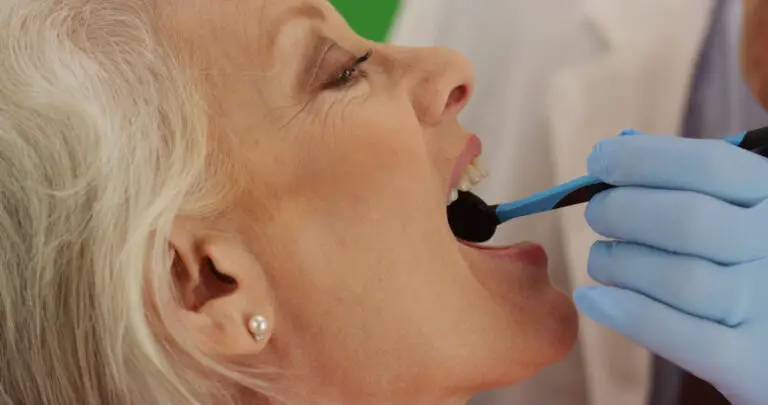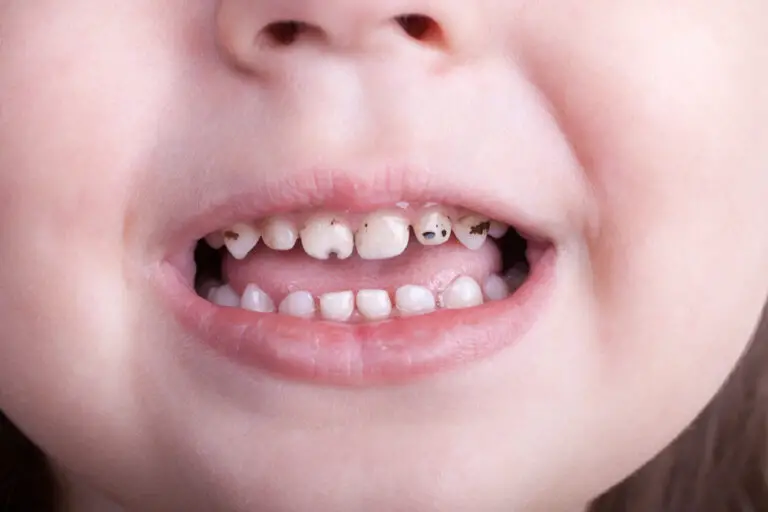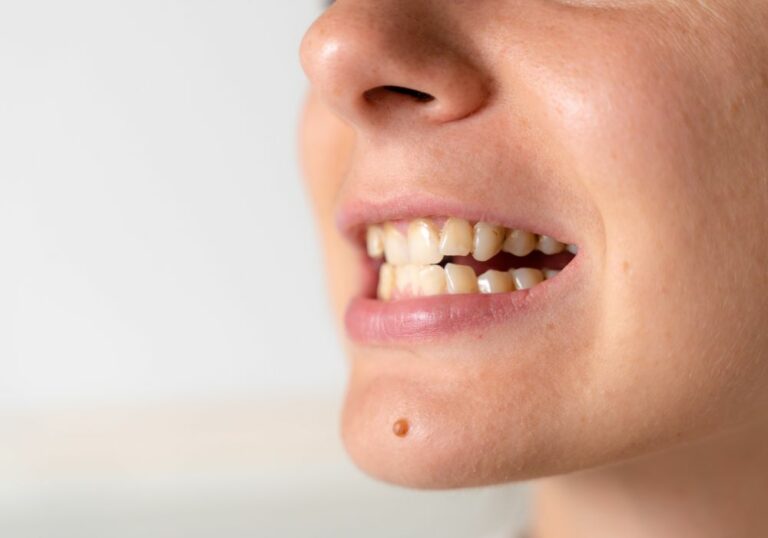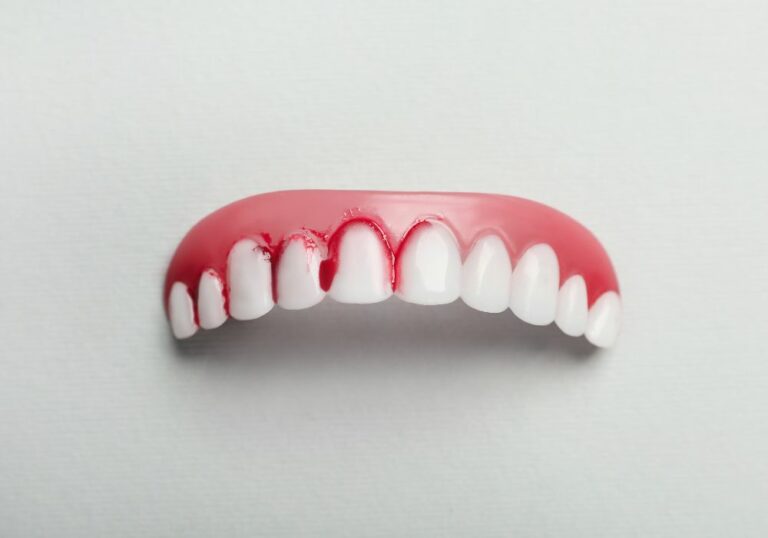Worn front teeth can be a cause for concern. Not only do they affect your appearance, but they can also lead to sensitivity and other dental issues. If you’ve noticed that your two front teeth are wearing away, you’re not alone. This is a common problem that affects many people, and there are several potential causes.
Tooth wear is a natural process that occurs over time as we age. However, certain habits and conditions can accelerate this process, leading to more rapid tooth wear. In this article, we’ll explore the various causes of tooth wear, with a focus on why your two front teeth may be wearing away. We’ll also discuss the symptoms of worn front teeth and the preventive measures and treatment options available.
Key Takeaways
- Tooth wear is a natural process that occurs over time, but certain habits and conditions can accelerate it.
- There are several potential causes of worn front teeth, including teeth grinding, acidic foods and drinks, and poor oral hygiene.
- Preventive measures like good oral hygiene and avoiding acidic foods can help protect your teeth, while treatment options like dental bonding and veneers can restore the appearance of worn front teeth.
Understanding Tooth Erosion
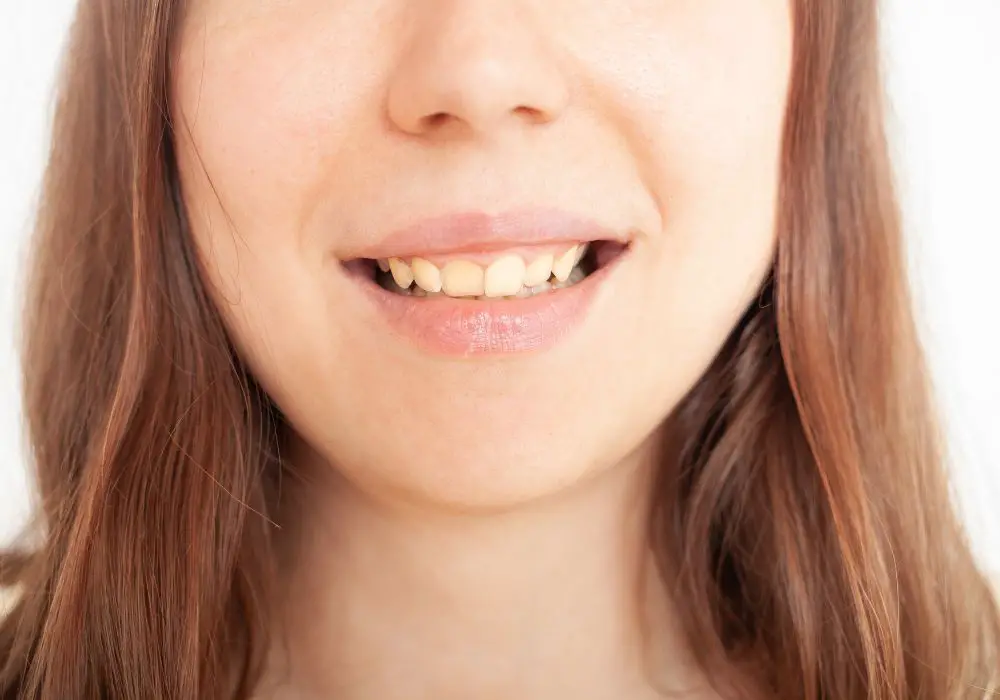
Tooth erosion is the wearing away of the tooth surface by an acid, which dissolves the enamel and dentine. It can cause significant damage to your teeth and lead to various dental problems. Here are some key points to help you understand tooth erosion:
- Causes of tooth erosion: Erosion can be caused by various factors such as diet, acid reflux, dry mouth, genetics, and environmental factors. Consuming acidic foods and drinks, such as citrus fruits, soda, and sports drinks, can cause tooth erosion.
- Symptoms of tooth erosion: Tooth sensitivity, discoloration, transparency, rounded teeth, and cracks are some of the common symptoms of tooth erosion. If you experience any of these symptoms, it’s important to see your dentist as soon as possible.
- Diagnosis of tooth erosion: Your dentist can diagnose tooth erosion by examining your teeth and asking about your medical history and diet. They may also use X-rays to check the extent of the damage.
- Treatment of tooth erosion: Treatment for tooth erosion depends on the severity of the damage. In mild cases, your dentist may recommend fluoride treatments and changes to your diet. In severe cases, restorative procedures such as dental bonding, crowns, or veneers may be necessary.
- Prevention of tooth erosion: To prevent tooth erosion, it’s important to limit your intake of acidic foods and drinks, and rinse your mouth with water after consuming them. Chewing sugar-free gum can also help increase saliva production, which can neutralize acid in your mouth. Additionally, maintaining good oral hygiene habits, such as brushing twice a day and flossing daily, can help prevent tooth erosion.
In conclusion, understanding tooth erosion and its causes, symptoms, diagnosis, treatment, and prevention can help you maintain good oral health and prevent dental problems. If you suspect you have tooth erosion, make an appointment with your dentist to discuss your options for treatment and prevention.
Why Are My Two Front Teeth Wearing Away?
If you’ve noticed that your two front teeth are wearing away, you’re not alone. This is a common dental issue that affects many people. There are several reasons why your two front teeth might be wearing away, including:
- Bruxism: This is a condition where you grind or clench your teeth, often while you sleep. Over time, this can wear down your teeth, including your two front teeth.
- Acidic diet: Consuming foods and drinks that are high in acid can erode your tooth enamel, which can cause your two front teeth to wear away.
- Medication side effects: Some medications can cause dry mouth, which can lead to tooth decay and erosion. This can cause your two front teeth to wear away.
- Genetics: Some people are simply more prone to tooth wear and erosion than others.
If you’re concerned about your two front teeth wearing away, it’s important to talk to your dentist. They can help you determine the cause of the problem and recommend the best course of treatment. In some cases, your dentist may recommend dental bonding, porcelain veneers, or porcelain crowns to restore your teeth and prevent further wear.
In addition to seeking treatment from your dentist, there are some things you can do at home to help prevent further wear and protect your teeth. These include:
- Avoiding acidic foods and drinks: Try to limit your consumption of foods and drinks that are high in acid, such as citrus fruits, soda, and sports drinks.
- Using a mouthguard: If you grind or clench your teeth, wearing a mouthguard while you sleep can help protect your teeth from further wear.
- Maintaining good oral hygiene: Brush your teeth twice a day with fluoride toothpaste and floss daily to help prevent tooth decay and erosion.
By taking steps to protect your teeth and seeking treatment from your dentist, you can help prevent further wear and protect your two front teeth.
Causes of Tooth Wear
Tooth wear is a common dental problem that affects many people. There are several factors that can contribute to tooth wear, including:
- Acidic diet: Consuming foods and drinks that are high in acid can erode the enamel on your teeth, causing them to wear away over time. Some common culprits include citrus fruits, sodas, and sports drinks.
- Bruxism: This is a condition in which you grind or clench your teeth, often unconsciously. Over time, this can wear down the enamel on your teeth, making them more susceptible to damage.
- Poor oral hygiene: Failing to brush and floss regularly can allow bacteria to build up on your teeth, leading to decay and erosion.
- Genetics: Some people are simply more prone to tooth wear than others due to their genetic makeup.
- Medications: Certain medications can cause dry mouth, which can lead to tooth wear. Additionally, some medications can cause acid reflux, which can also contribute to enamel erosion.
- Gastrointestinal problems: Conditions such as acid reflux and GERD can cause stomach acid to flow back up into your mouth, leading to tooth wear.
- Friction: Activities such as chewing on pens or using your teeth to open packages can cause friction that wears down your teeth.
It’s important to address tooth wear early on, as it can lead to more serious dental problems down the line. If you’re experiencing tooth wear, make an appointment with your dentist to discuss your options for treatment and prevention.
Symptoms of Worn Front Teeth
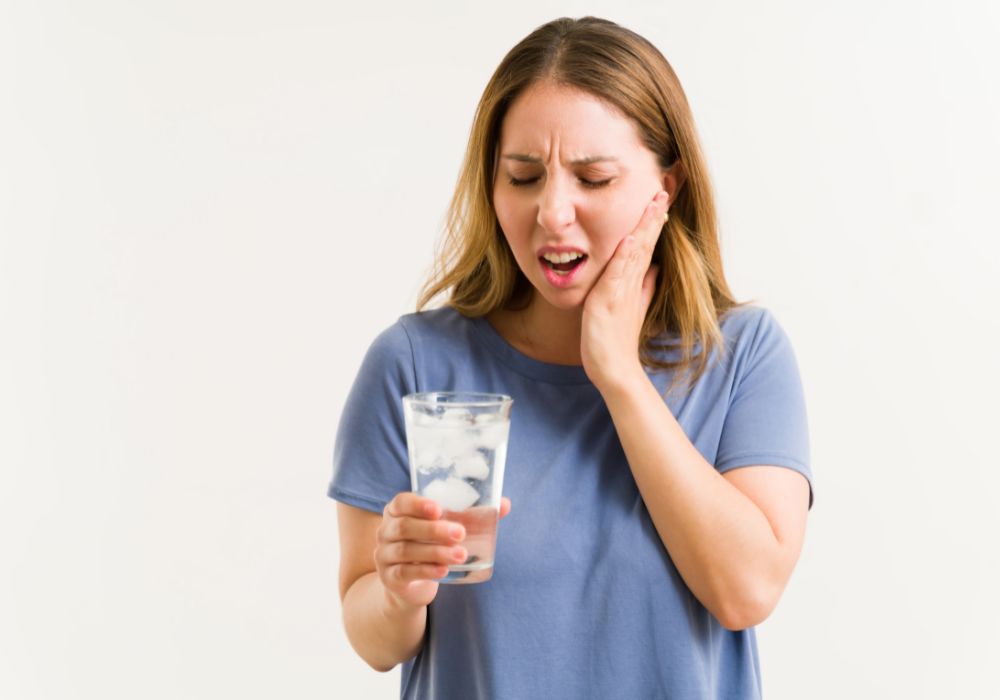
If you’re wondering why your two front teeth are wearing away, it’s important to know the symptoms of worn front teeth. Here are some common symptoms:
Physical Changes
One of the most noticeable symptoms of worn front teeth is the physical changes that occur. You may notice that your front teeth are shorter than they used to be, or that they have become more rounded. You may also notice that your teeth have become thinner, and that there are small cracks or chips in the enamel.
Sensitivity
Another symptom of worn front teeth is sensitivity. You may find that your teeth are more sensitive to hot or cold temperatures, or that they are more sensitive to sweet or acidic foods. This is because the enamel on your teeth has worn away, exposing the sensitive dentin underneath.
Pain
In some cases, worn front teeth can cause pain. You may experience pain when biting down or chewing, or you may have a constant dull ache in your front teeth. This can be a sign that the wear on your teeth has progressed to the point where the dentin is exposed and the nerves are being affected.
If you are experiencing any of these symptoms, it’s important to see your dentist. They can help determine the cause of your worn front teeth and recommend the best course of treatment.
The Role of Diet in Tooth Wear
The foods and drinks that we consume on a regular basis can have a significant impact on our oral health. An acidic diet has been associated with erosive tooth wear, which can cause the teeth to become thin, brittle, and sensitive. While some people who consume dietary acids develop erosive tooth wear, others do not. This suggests that there are other risk factors that increase the likelihood of severe tooth wear.
Tooth wear caused by acidic foods and drinks is a preventable aspect of erosive tooth wear. Reducing the consumption of acidic foods and drinks can help to delay the progression of tooth wear. Acidic foods and drinks include:
- Citrus fruits and juices
- Soda and energy drinks
- Wine and other alcoholic beverages
- Pickles and other pickled foods
- Tomatoes and tomato-based products
- Sports drinks and fruit juices
It is important to note that not all acidic foods and drinks are bad for your teeth. For example, some fruits like apples and strawberries can actually help to clean your teeth and promote oral health.
In addition to reducing the consumption of acidic foods and drinks, it is also important to maintain good oral hygiene habits. Brushing twice a day with a fluoride toothpaste and flossing daily can help to remove plaque and prevent tooth decay. Regular dental checkups and cleanings can also help to identify and treat any early signs of tooth wear.
The Impact of Teeth Grinding
Teeth grinding, also known as bruxism, can have a significant impact on the health and appearance of your teeth. Here are some of the ways that teeth grinding can affect your dental health:
- Worn Teeth: Grinding your teeth can cause the enamel to wear away, which can make your teeth appear shorter and more worn down over time. In severe cases, grinding can even wear down the teeth to the point where they are no longer functional.
- Tooth Sensitivity: As the enamel wears away, the inner layers of the tooth can become exposed, which can lead to increased sensitivity to hot and cold temperatures.
- Chipped or Cracked Teeth: Grinding can cause your teeth to become chipped or cracked, which can lead to further dental problems down the line.
- Jaw Pain: The constant pressure of grinding can cause your jaw muscles to become sore and fatigued, which can lead to pain and discomfort.
If you suspect that you may be grinding your teeth, it is important to talk to your dentist. They can help you determine the cause of your grinding and recommend treatment options to help alleviate the symptoms and prevent further damage to your teeth.
Preventive Measures for Tooth Wear
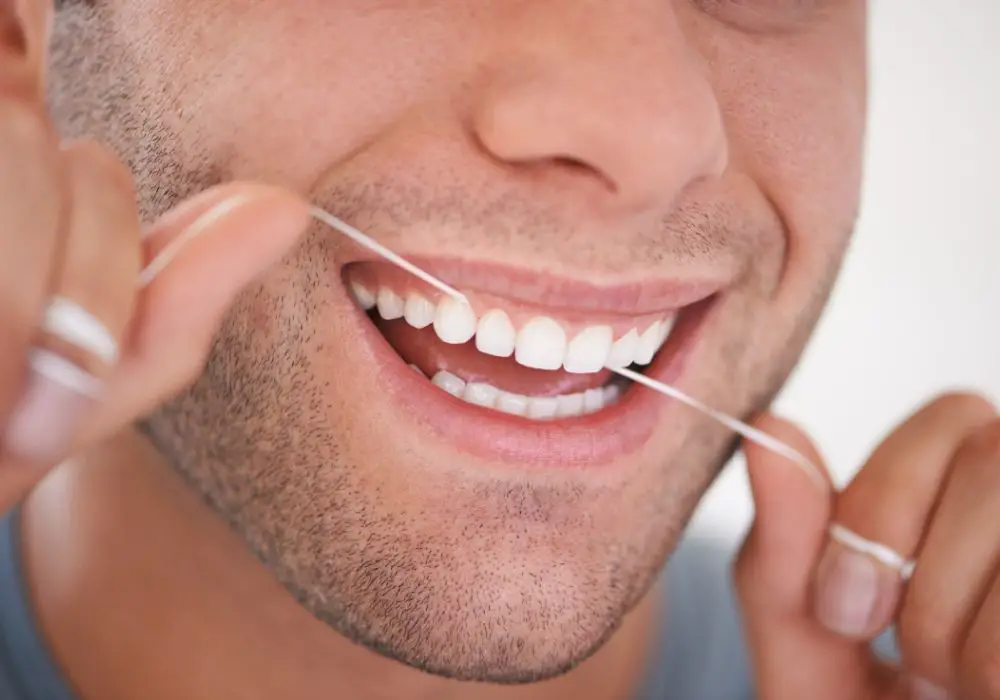
Tooth wear can be a serious dental concern that can cause discomfort and sensitivity. Fortunately, there are several preventive measures that you can take to prevent tooth wear from occurring. Here are some of the most effective preventive measures that you can take:
Oral Hygiene Practices
Maintaining good oral hygiene is crucial for preventing tooth wear. Brushing your teeth twice a day with fluoride toothpaste can help to protect your teeth from acid erosion. It is also important to floss daily to remove plaque and food particles from between your teeth.
Dietary Adjustments
Your diet can also play a significant role in preventing tooth wear. Limiting your intake of sugary and acidic foods can help to protect your teeth from acid erosion. Instead, opt for foods that are high in calcium, such as cheese, milk, and yogurt, which can help to strengthen your teeth.
Use of Mouth Guards
If you grind your teeth at night, wearing a mouth guard can help to prevent tooth wear. Mouth guards are custom-fitted devices that are worn over your teeth while you sleep. They can help to protect your teeth from the excessive wear and tear caused by grinding.
In conclusion, taking preventive measures to protect your teeth from wear and tear is essential for maintaining good oral health. By following good oral hygiene practices, making dietary adjustments, and using mouth guards, you can help to prevent tooth wear and keep your smile healthy and beautiful.
Treatment Options
If you have worn-down front teeth, there are several treatment options available to you. Your dentist will evaluate your situation and recommend the best option for you. Here are some common treatment options:
Dental Bonding
Dental bonding is a simple and cost-effective treatment option for worn-down front teeth. In this procedure, your dentist will apply a tooth-colored resin material to the surface of your teeth and then shape and polish it to match the rest of your teeth. Dental bonding can improve the appearance of your teeth and protect them from further wear and tear.
Veneers
Veneers are thin, custom-made shells that are placed over the front of your teeth to improve their appearance. They are made of porcelain or composite resin and can be used to correct a variety of dental problems, including worn-down teeth. Veneers are durable and long-lasting, and they can give you a beautiful, natural-looking smile.
Crowns
Crowns are a more invasive treatment option for worn-down front teeth. In this procedure, your dentist will remove a small amount of tooth structure and then place a custom-made crown over the remaining tooth. Crowns are strong and durable, and they can protect your teeth from further wear and tear. However, they are more expensive than other treatment options and require more preparation.
Overall, the best treatment option for you will depend on the extent of your tooth wear and your individual needs and preferences. Consult with your dentist to determine which treatment option is right for you.
Frequently Asked Questions
Why are my front teeth thinning at the bottom?
There are several reasons why your front teeth may be thinning at the bottom. One possible cause is teeth grinding or clenching, which can wear down the enamel on your teeth. Another possible cause is a diet high in acidic foods or drinks, which can erode tooth enamel. If you’re experiencing thinning at the bottom of your front teeth, it’s best to consult with a dentist to determine the underlying cause and develop a treatment plan.
How can I fix worn down front teeth?
The treatment for worn down front teeth depends on the severity of the wear and the underlying cause. In some cases, your dentist may recommend bonding or veneers to restore the appearance of your teeth. If the wear is more severe, your dentist may recommend a crown or even a root canal. It’s important to consult with a dentist to determine the best course of treatment for your individual needs.
Why are the backs of my front teeth feeling rough?
The rough feeling on the backs of your front teeth may be caused by enamel erosion or tooth decay. It’s important to consult with a dentist to determine the underlying cause and develop a treatment plan. In some cases, a fluoride treatment may be recommended to help rebuild enamel. In other cases, a filling or crown may be necessary to restore the tooth.
How do I fix enamel loss on my front teeth?
Enamel loss on your front teeth can be caused by a variety of factors, including acidic foods and drinks, teeth grinding, and tooth decay. Depending on the severity of the enamel loss, your dentist may recommend a fluoride treatment, bonding, or veneers to restore the appearance of your teeth. In some cases, a crown or root canal may be necessary to restore the tooth.
Can tooth enamel be rebuilt?
While tooth enamel cannot be rebuilt once it’s lost, there are treatments that can help strengthen and protect your remaining enamel. Fluoride treatments can help strengthen enamel and prevent further erosion, while bonding and veneers can help protect and restore the appearance of your teeth.
Why are my two front teeth decaying?
Tooth decay can be caused by a variety of factors, including poor oral hygiene, a diet high in sugar and starches, and genetics. If you’re experiencing decay in your two front teeth, it’s important to consult with a dentist to determine the underlying cause and develop a treatment plan. Treatment options may include fillings, crowns, or even a root canal.

